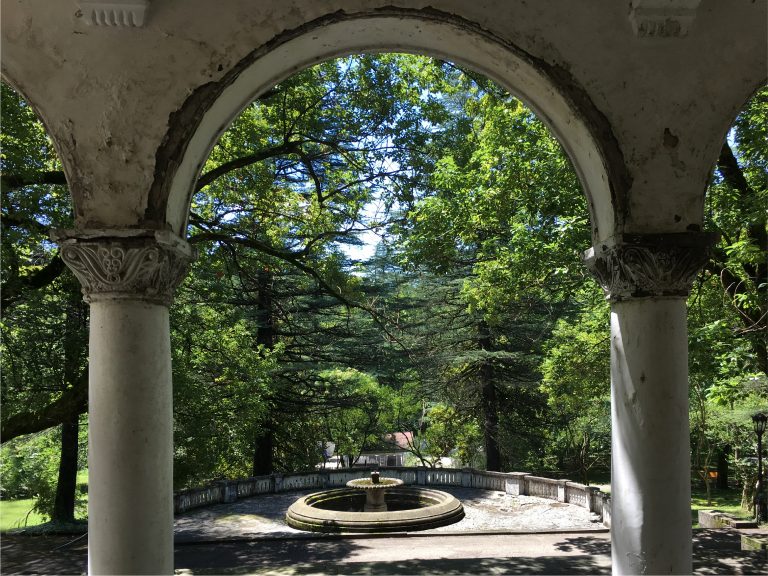Asst. Prof. Suzanne Harris-Brandts receives SSHRC Insight Grant to study landscapes in Republic of Georgia
July 21, 2021

Assistant Professor Suzanne Harris-Brandts, alongside colleagues at Trent University and Ilia State University, has been awarded a five-year Social Sciences and Humanities Research Council of Canada (SSHRC) 2020 Insight Grant.
The $152,000 grant will fund research titled Gardens Otherwise and Elsewhere: A Historical and Ethnographic Study of Georgian Gardens. It brings together a multidisciplinary team to study six landscape typologies in the Republic of Georgia.
“This grant provides an opportunity to explore the surprising ways landscape epitomizes the social, political, and economic predicaments of Georgia, offering broader insights into the country’s evolving urban development,” says Dr. Harris-Brandts.
“We will study iconic urban parks and private estate gardens alongside their adjacent architectural landmarks,” she explains. “Moving beyond cities, we will also study the changing landscapes of botanical gardens, derelict tea plantations, sacred mountain shrines, and picturesque spa resort towns, including connections to architectural heritage.”
The latter landscape typology is thematically tied to her forthcoming winter 2022 undergraduate urbanism studio, Retreat Urbanisms, which looks at similar iconic resort landscapes in Muskoka, ON.
This research builds on Harris-Brandts’ existing scholarship investigating the socio-political dimensions of architecture and urbanism in Georgia. It also expands her work to include a closer reading of the role of landscape in the country’s politics and social relations.
“Our in-depth analysis of these six types of landscape will contribute to the multidisciplinary study of urban and ecological issues in the country, as well as relative to similar landscapes in other contexts,” she says.
“We will make theoretical contributions to architecture, landscape architecture, urban studies, and anthropology while also suggesting new ways scholars from these fields may collaborate. For the design professions, there will be takeaways for considering the built and natural environments more holistically, and for reflecting on non-human forms of spatial agency.”
The other team members are professors of anthropology: Dr. Paul Manning and Dr. Anne Meneley, of Trent University in Peterborough, ON, and Dr. Ketevan Gurchiani, Dr. Tamta Khalvashi and Dr. Florian Muhlfried of Ilia State University in Tbilisi, Georgia.